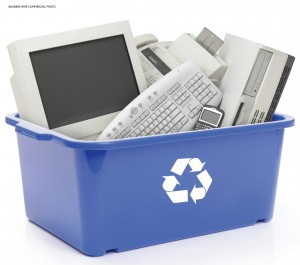 In the early years of our business, we frequently received requests for floppy disk data recovery — and we gladly took those cases. Floppy disks are relatively easy to restore, given their simple construction and low data density.
In the early years of our business, we frequently received requests for floppy disk data recovery — and we gladly took those cases. Floppy disks are relatively easy to restore, given their simple construction and low data density.
Of course, that was the late 1990s and early 2000s. In 2023, few consumers regularly use floppy disks. In fact, few files are small enough to fit on floppies — 3.5-inch floppies had a max capacity of 2.8 megabytes (MB), though most were a standard 1.44 MB.
But contrary to popular belief, floppy disks are still commonly used in certain industries. The most common applications include:
- Medical data for older hospital equipment.
- Navigation data for certain airplanes, such as older Boeing 747s.
- Software for the San Francisco transit agency.
So, why do some institutions still rely on outdated technology? For starters, some software isn’t that complicated — and if a data storage solution works, there’s no reason to upgrade.
The Advantages and Disadvantages of Floppy Disks
Outdated (or legacy) hardware can be quite beneficial in some circumstances. When a system is extremely old, it’s intrinsically resistant to malware and ransomware, unless bad actors develop specific malware for the target system. New systems must be designed to combat those threats — and for some institutions, upgrading is simply not worth the investment.
Of course, there are also drawbacks: When legacy systems fail, they tend to do so spectacularly. In late 2021, Southwest Airlines canceled more than 15,000 flights, and aging software allegedly played a major role.
There’s no evidence that Southwest relied on floppy disks, or that failing floppies played any role in the cancellations. But the point is clear: If a system is truly mission-critical, it needs to be robust enough to handle unconventional situations.
That’s especially true for, ahem, nuclear weapons. Up until 2019, the Department of Defense (DOD) relied on 1970s-era systems for nuclear command and control. Those systems used (you guessed it) eight-inch floppy disks.
While floppy disks don’t have much of a future, legacy hardware takes time to “die.”
As we’ve discussed in other articles, the market for hard drives won’t fade anytime soon, despite the significant performance advantages of solid-state storage. At scale, hard drives are much less expensive — and the performance advantages are less of a factor for enterprise-level servers and cloud systems.
And other “old” storage technologies have found their niche. Data tapes, which were largely replaced by hard drives, have made a significant comeback in recent years. Tapes provide a lower total cost of ownership (TCO) and better resistance to ransomware, user error, and other common threats.
At Datarecovery.com, our research and development department has created data recovery, conversion, and migration processes for virtually all types of data storage systems. That includes hard drives, RAID arrays, hundreds of data tape formats — and, yes, floppy disks.
To learn more about our services, call 1-800-237-4200 to speak with an expert or schedule a risk-free data recovery evaluation online.




